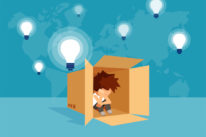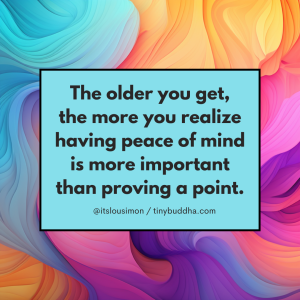
“With realization of one’s own potential and self-confidence in one’s ability, one can build a better world.” – Dalai Lama
Sensitivity can feel like a gift or a burden, depending on our relationship to it.
If you often feel completely overwhelmed by an overload of stimulation, then your sensitivity probably doesn’t feel like an asset. Maybe more like a liability. But it doesn’t have to be this way.
As an introvert and sensitive person, I’ve navigated these waters my whole life, and I’ve come to realize that sensitivity is more than a gift—it’s a superpower! But first we need to understand what sensitivity is and what it’s not.
What is Sensitivity (the Superpower)?
To keep it fairly simple, sensitivity is essentially the ability to feel. The more sensitive we are, the more we feel.
Sensitivity allows us to be more aware of what’s happening around us—people, conversations, traffic, nature, how a place feels. It also makes us more aware of and in touch with what’s happening inside us—our thoughts, emotions, sensations, and how we react to external things.
I see sensitivity as a foundation for self-awareness. Without the ability to feel, we could never discern what’s really happening and break through the limits of our personality and fears.
Sensitivity is also an aspect of empathy. Because we can feel what others are feeling, it allows us to understand them and connect with them more deeply. Without some degree of sensitivity, we’d be disconnected from people.
On the other side, it can be extremely overwhelming. Too much sensory information coming in all at once can leave us feeling agitated, overwhelmed, and drained. When sensitivity becomes overwhelming, we often pull away from people and retreat to time on our own—a typical trait of an introvert or HSP.
When I was young, wherever my parents took me, I’d be very aware of the spaces around me and how they made me feel. I either liked a place because I felt good there, or I didn’t like it because I felt uncomfortable.
At that time, I didn’t comprehend much more than that—I didn’t know how to—and it’s very clear to me now that I didn’t have a context for it back then. There was too much sensory information passing through me, so when a place felt unpleasant it was just an overwhelming sense of feeling unsettled and unsafe.
I was also very sensitive to people. I would instantly have a sense of the state, or mood, of them as soon as I met them, or even just saw them. When I was young, I didn’t understand what they were feeling, but whatever it was, I’d feel it in myself. Depending on their emotion, this could be very uncomfortable.
I’d find myself feeling frustrated and emotional for no reason when around certain people, but it wasn’t my emotion. Again, at that time, I couldn’t tell the difference because I’d feel it in me and assume it was me, but I didn’t understand why I felt like that. Very confusing.
Later I learned to know the difference between my own emotions and someone else’s, as I was much clearer on what was happening inside me.
This is when I started recognizing the gift, or superpower, that sensitivity brought into my life. In sensing what others were feeling, I experienced a sense of connection to them, which helped me understand them.
This awakened a sense of caring in me. I could feel when people were upset, sad, or hurt, and I found myself wanting to help. If someone was angry, I started to feel beyond the anger and to understand why they felt that way. Diffusing an argument or conflict was easy because I could feel where they were coming from.
It’s so easy to judge people, retaliate, or disconnect when we don’t understand them. The moment we understand, there is opening, heart, and compassion.
Sensitivity, our ability to feel, is a superpower that allows us to understand, connect, and have deep insights about ourselves and the nature of humanity. And the world needs more of this.
What’s Not a Superpower
If we say someone is emotionally sensitive, it could mean they’re sensitive to their own emotions, or it could mean they react emotionally to others’ words, actions, and emotions.
Being sensitive to what’s happening inside ourselves is the basis for self-awareness, and an essential ingredient if we want to grow. A superpower.
If someone says something and we’re hurt by it, we might call it being sensitive, but it’s more an emotional reaction than a superpower. Yes, we may feel the intention behind their words, but feeling it and being hurt by it are not the same thing. If their words have triggered something in us, then it’s more about the stability of our sense of self.
Another example: You’re in a crowded room and you become overwhelmed and drained by the noise and stimulation.
Here your sensitivity gives you the ability to feel everything that’s happening around you. I think this is an amazing gift. It may be a lot of stimulation, but I’d still call this a superpower.
However, when we feel overwhelmed or drained, it’s not solely because we’re sensitive. It’s because we don’t feel grounded or stable internally, as I mentioned in my previous post about how I preserve my energy in groups as an introvert. The good news is, we can proactively foster internal stability.
When we feel overwhelmed and drained in crowds, we often just want to remove ourselves from the situation and be alone. There’s no right or wrong, what we should or shouldn’t do, but when we acknowledge what’s happening inside us, then we have a choice.
Learning Not to Let Sensitivity Control Us
When I was young my sensitivity was too much for me. I would feel the good, the bad, and everything in between. It felt like the world around me was not around me but passing through me; and because I didn’t have a context for what was happening, the world felt unsafe, so the only way for me to function was to shut down.
It wasn’t something I did consciously, as I didn’t understand what was happening. It was something I did on a subconscious level.
It wasn’t until many years later, after doing a lot of work on myself, that I was able to realize what I’d done. I’m now able to reconnect with my sensitivity and wield it while feeling safe.
Sensitivity is a gift, but if we don’t have a stable center within us, then our ability to feel becomes stressful and overwhelming, and ultimately begins to control us. In a sense, we become a victim to the power of our own sensitivity, as if it’s wielding us.
To embrace our superpower—to be able to feel for and connect with others deeply without feeling overwhelmed or easily hurt and reacting emotionally—we need to find stillness inside ourselves. A stable center.
If we can’t find stillness and quiet amidst the noise of our own mind, we’ll never be able to find peace and quiet amidst the noise of the world.
Our thoughts amplify how we react to the overstimulation of our sensitivity. We pick up on what’s happening around us, it creates a space inside us—a landscape of emotions and feelings—and this triggers thoughts. The thoughts then reinforce the emotions, anchoring them further. The emotions continue triggering more thoughts, in a vicious cycle that goes on and on.
For example, if we’re in a loud, crowded room we may feel anxious as a result of all the sensory input—the noise, people’s energy, and the energy of the place. We may start thinking thoughts like “Why did I come here? I knew this would be a bad idea.” Then we start feeling trapped and overwhelmed, triggering more thoughts of perhaps how you blame your friend for inviting you, or “How am I going to just disappear?” This all amplifies the anxiety.
Or, if someone says something that triggers us emotionally, we may feel insecure, then start thinking about how we always say the wrong things, and then feel more insecure.
After starting a meditation practice, I realized that when I’m more still and quiet inside myself, I react less and less to external stimulation. I’m no longer at the mercy of my superpower. In fact, the stiller I become, the more I feel, but without it becoming chaotic or overwhelming.
The Problem Isn’t Our Sensitivity; It’s Our Lack of Stability
I still value time on my own. I always have and always will. But I now have a more stable center, so I’m able to use my sensitivity as a superpower.
You can do the same by prioritizing activities that help you create a sense of internal stability, such as:
After meditation, I particularly like spending time in nature. We can walk outside and let our mind run, and there will still be a calming effect. But when we consciously tune into our surroundings as we walk—using the superpower of our sensitivity to feel nature’s stillness—our own stillness becomes more tangible and stable.
When we feel stable inside ourselves, we have a solid foundation to feel deeply, so the outside world has less power to control us. The stillness inside is unwavering, regardless of what’s happening outside of us.
—
Our sensitivity is a gift in that it opens the door to a more connected world, but we need to proactively foster internal stability so we’re not at the mercy of the chaos around us. The more we embrace our superpower and live in it from a space of stillness and stability, the more at peace we will be inside ourselves—creating a greater capacity to help others, and in turn creating a more connected humanity.
Find stillness. Find your superpower.
About Ben Fizell
Ben is a meditation and mindfulness teacher, stillness coach, nature lover, a curious and heart centered human being with a vision – the Peacekeeper Project. Ben provides education and training to help people quiet their mind so they can live from their heart. Learn more and access a free meditation course at Peacekeeper Project. You can also follow on YouTube, Instagram, Facebook.
- Web |
- YouTube |
- More Posts













 Though I run this site, it is not mine. It's ours. It's not about me. It's about us. Your stories and your wisdom are just as meaningful as mine.
Though I run this site, it is not mine. It's ours. It's not about me. It's about us. Your stories and your wisdom are just as meaningful as mine. 